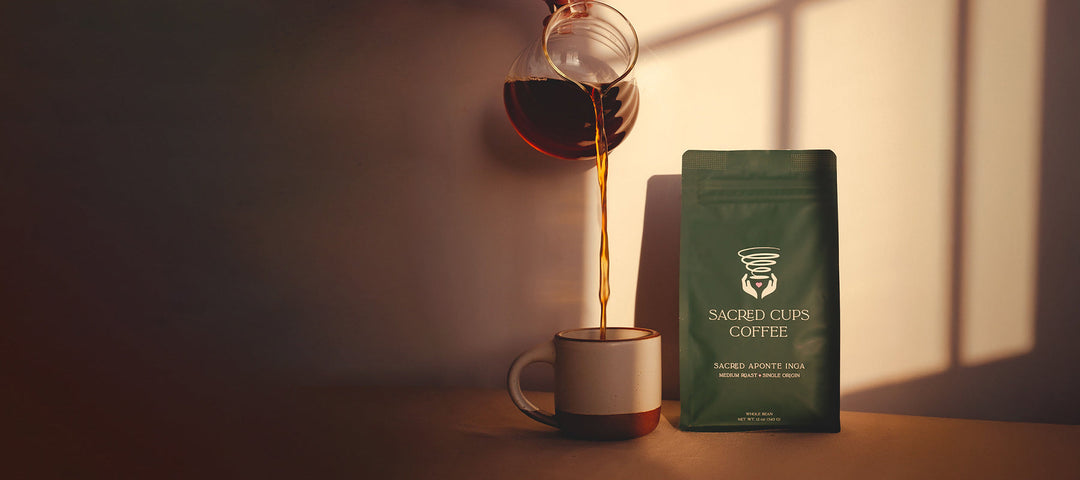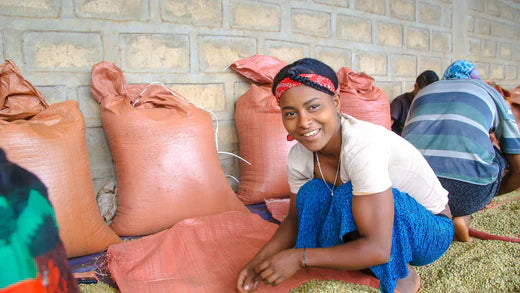Ensuring the Integrity of Purity Coffee
When someone has a complaint or concern regarding our products, we take this very seriously. Feedback, constructive criticism, and complaints are all incredibly important to us. They push us to improve.
Our founding principle is, and always has been, to make every decision based on health, without compromise. Every single step in our process is based upon that foundational belief.
Our dedication to health-focused practices starts with our commitment to regenerative farming and achieving the highest organic standards. Our coffee beans are not only USDA certified organic but also Smithsonian Bird-Friendly® certified, the gold standard for shade-grown organic coffee.
Our roasters are USDA certified organic as well, ensuring that every step of our production process maintains the highest level of organic integrity.
Additionally, we adhere to the strictest food safety standards, implementing rigorous testing, quality control, and stringent sanitation protocols throughout our supply chain.
We’ve spent years studying the association between coffee and health, and work with some of the top coffee scientists in the world.
We are tirelessly committed to producing the healthiest mold free coffee possible while providing full transparency in regards to our research, innovation, sourcing, and process.
An article was published this week which showcased testing that was done on reportedly a dozen premium coffees. Out of these 12 coffees, Purity Coffee was highlighted as the only coffee found to have tested positive for pesticide residue or organic fluorine (indicating presence of PFAS). When brought to our attention, we naturally found this very concerning.
After reading through the article, we have issues with the analysis and question the integrity of the study. In the spirit of truthfulness and authenticity, we have made multiple attempts to provide additional clarity and have repeatedly requested to see the COAs associated with the testing.
All of our outreach has been ignored.
All of our comment replies have gone unpublished or been deleted.
Despite agreeing to an NDA, no COAs have been provided to us.
Given we’ve been silenced at every turn, we feel compelled to respond to this matter through our own channel.
To be clear, we are not at all upset that someone has tested our products and are sharing their results. In fact, we welcome and encourage those with the resources to perform such testing to hold us and other coffee brands accountable for our claims. One of our goals at Purity is to educate consumers such that they will start to demand that coffee companies hold themselves to a higher standard.
What’s troubling about the article in question is the distortion of the truth, which is something we cannot abide at Purity. It’s bad enough that there is already a disturbing amount of misinformation and disinformation out there about coffee, but when egregious claims are made about our company or our product, we are most definitely going to respond.
The author posits that Purity Coffee FLOW was the only coffee tested which showed positive for pesticide residue, with a result of 15 ppb for 2-phenylphenol. This particular compound is not commonly used as an agrochemical and it is absolutely not found in our green coffee. It is, however, an unavoidable byproduct of the coffee roasting process; hence, it is found in all roasted coffees.
The author selectively highlighted us as the only brand to test positive for this negative compound when we unequivocally know that it is also present in all coffees - not just those tested for this article. The research study the author linked in their blog post disproves their assertion and provides empirical evidence that not only is 2-phenylphenol unavoidable in roasted coffee, the trace amounts that develop from roasting are negligible. The quantifiable amounts in roasted coffee pose absolutely no risk to human health.
In addition, based on the verified amounts of 2-phenylphenol in roasted coffee, Purity Coffee FLOW’s 15 ppb places us well below the average of 10 ppb to 90 ppb found in the 162 coffee sample size. Which stands to reason, since our process is designed around maximizing the beneficial compounds while minimizing or avoiding the negative compounds found in coffee.
Either the author did not test the other coffees for 2-phenylphenol or they willfully chose to mislead their audience.
In addition to FLOW whole bean, the author claims to have tested our EASE sachets. Ours was the only product they tested in this particular format despite there being a number of coffees available in single serve tea bags. With absolutely no published evidence, the author alleges that our EASE Pocket Purity likely contains PFAS due to the presence of organic fluorine.
Our coffees do not contain organic fluorine.
The material used for the sachets is composed of 100% compostable non-GMO polylactic acid, which is a plant fiber derived from sugarcane. This material is produced to the highest standard for both health and sustainability. It also does not contain organic fluorine.
The author provides no mention of the devices used in the brewing, what sort of water was used, and again…no tangible evidence. This compound could have been introduced into the brewed sample through a variety of ways. And while organic fluorine is a novel indicator for PFAS, it does not validate the presence of PFAS.
This is yet another fear tactic designed to stir controversy, as well as drive traffic and engagement for the author’s “coffee guide”. A good rule of thumb is that if you find yourself reading a “science-backed” research article that is rife with affiliate links and contains no fewer than 35 display ads, pause and question the integrity and motivation behind it.
However, to ensure our customers’ peace of mind, we will be conducting quantitative total fluorine testing of brewed samples of our single-serve sachets and we will share those results publicly. If, for example, we find that the wrapper within which the sachet is packaged contains negative compounds leaching into our Pocket Purity, we will acknowledge that and seek an alternative. We certainly would never intentionally expose our customers to “forever chemicals”.
August 2024 Update:
We recently conducted laboratory testing on our Pocket Purity packaging to assess the presence of PFAS (per- and polyfluoroalkyl substances). The results from the testing, as evidenced by this certificate of analysis, shows that there were no detectable traces of PFAS in our packaging, ensuring it is free from these substances.
As I stated earlier in this post, a huge part of our mission is to educate consumers on the truth about coffee and to shed light on an industry that should be holding itself to a higher standard as a whole. We strongly believe that coffee is a healthy beverage for the majority of people and we have an unwavering commitment to producing the healthiest version of coffee possible.
Integrity, transparency, and truthfulness are hallmarks of our company ethos. We are here to answer questions, provide clarity, and address any concerns you may have. That said, please do not hesitate to comment below or reach out to our support team for additional clarity around the results shared in the aforementioned blog article or any other concerns you may have.
Kind regards,
Andrew Salisbury
Founder & CEO
7 comments








I applaud Purity for taking a stand for themselves. They are absolutely allowed to be angry about this. Lead Safe Mama has only shown to be a walking red flag over and over again. I used to adamantly trust her until I saw how much she contradicts herself, how often she blocks anyone who questions her, how she constantly requires her followers to donate money so she can continue her research in her basement/house, and how she only seems to recommend her affiliated brands. People need to wake up. Why are we only trusting this ONE woman? If other testing companies were reporting the same findings I would trust that. But the fact that she won’t even hand over the COS?? Why the rejection for transparacy?
I think those of you that are pointing and sputtering, aghast…AGHAST! that a chemical was present at barely detectable amounts in this (or any other) agricultural product is frankly pig-ignorant and misguided. Purity is crystal clear about the efforts they make to eliminate the most common contaminations found in coffee. My family buys it for that reason. The fact that this one (potentially dubious) report, THAT THE PUBLISHER REFUSES TO PROVIDE TO PURITY THE FULL DETAILS OF HOW/WHAT THEY TESTED, should not, and does not somehow completely de-legitamize the entire brand as a pack of lying shysters. You folks can be concerned, but your comments above are shameful and foolish. You act like you’ve caught the company spraying glyphosate on their beans! Such righteous indignation is empty and embarrassing. I’ve been a coffee drinker for over 30 years, and I worked in a coffee roastery that processed millions of pounds of beans for over 5 years. There are hundreds of vectors for many thousands of chemicals to get into this agricultural product. In my experience, the standard company effort at “clean coffee” begins and ends with “buying organic”. They DO NOT test their own lots for mold, fungus, pesticides, herbicides, let alpne any of the other thousands of chemicals that can potentially be in the bean. They don’t make special guarantees. They take the organic certificate at face value and serve it to you as clean. Even the best of the best suppliers are going to contain byproducts somewhere, sometimes- ask me how many pounds of metal, plastic, pallet wood, and countless other crap I’ve seen filtered out of the bags of raw green organic beans before (hopefully) they go into the roaster. Garbage of all kinds gets into raw agricultural products guys—it comes from impoverished countries with potentially inconsistent processing. Purity is among the best of the best when it comes to their focus and integrity on ensuring clean coffee.
I’m not a shill for them- but I am a moderately experienced insider to the coffee industry – and this is the one that I choose for me and my wife to drink. The layers of inspection and care they employ are well above industry standards, and anyone that thinks they are somehow cutting corners or bullshittting in these comments is simply barking on the internet to hear themselves bark— you don’t actually know what you’re talking about.
Lets get the actual test results from the article writer. I agree with the Purity response that it’s surprising that no other samples contained this universally common contamination in even trace amounts. But let’s determine the actual lot number(s) of the coffee that they say was tested. Let’s look at chain of custody for that/those origin(s) and the path they took from growing to picking to processing to warehousing to shipping to local storage to roasting to packaging to the testers table. I’m sure Purity is trying to make some of those efforts now, and I’m sure they will determine if/how any efforts can be made at their end to inspect and solve for any anomalies they find. In the mean time, I’ll continue to use their coffee, and I expect we will all see them update their own investigations going forward. These people are an ally to good coffee – if there is/was any merit to this as-yet uncorroborated report from the internet, I trust them to stake their reputation on doing what they can reasonably do to make sure their coffee is as good as it can be. No coffee is truly perfect – there are microplastics in all of us, forever chemicals everywhere in the air, soil, rain and your flesh, and everything is going to be dirty somehow if you look for it. Let’s see how the details of this internet story pan out. I’m going to remain a Purity customer for their product quality and I firmly understand where they are coming from as a supplier — these are good people doing good work with great coffees.
Hi Andrew,
I read the article and being a Purity drinker was very concerned. To be clear, I have been a subscriber of Purity Coffee for years and it is my favorite coffee.
You state that Purity was singled out, when in fact it was not. Every single coffee on the list all got the same 500+ pesticide panel testing. You claim that 2-phenylphenol is a natural by-product of the coffee roasting process, but Purity was the only one that contained it. I’d also like to point out that it was clearly stated in the article that its presence may have been a result of roasting.
Your open letter feels like an attack as well as there being no admission that any of this could possibly be true. You imply the author is a liar and say it’s an impossible result. I was one of the people who emailed you as soon as I read the article and I received the following response:
‘Hello Trish,
Thank you for your follow-up. I understand your concerns about phenylphenols. Please allow me a moment to address this specific point.
I can confirm that aside from being vigilant about mold and mycotoxins, our quality standards encompass a wide range of potential contaminants. We are dedicated to providing a product that not only meets but exceeds industry standards. However, in our provided resources, we do not have specific mentions of testing for phenylphenols.
We appreciate you bringing this to our attention, and we recognize the importance of staying informed and responsive to our customers’ health concerns. The trust and wellbeing of our customers are of utmost priority for us. As such, I will forward your concern to our product quality team to ensure that they are aware and to see if we can provide detailed information regarding this matter.
In the meantime, if there are other questions or additional concerns I can assist you with, please do not hesitate to reach out.’
This email clearly states that you do not test for phenylphenols. I shared several emails with Purity Coffee regarding this, as did several others I know. We all got slightly different responses, but there seems to be some misinformation and gaslighting going on. I don’t know what was said in your approach to the person who wrote the article, but if it was aggressive rather than cooperative, with any kind of gaslighting, I can understand why they didn’t respond.
Lastly, I’d like to point out that it was not the author who came up with these findings, it was an EPA certified lab.
After seeing this Purity blog post I commented on the insta post made by this one lady simply saying “Purity has such high integrity I think you should reach out to them, they have made comments on this research” and the woman deleted my comment and blocked me! This just shows how these findings could be biased and unreliable. Lastly, I find it funny how she is sponsored by the “better”coffees. This is just flat out immature!
The worst response ever! Taken from Trump and Kari Lake. You could have saved having to do a full article and just respond with “fake news”. Your name is Purity and the other organic coffees tested didn’t have any issues that you guys did and they don’t even say they test their coffees. You have forever lost me and my friends as customers. Nice job. Fire whomever thought this was the proper way to respond. I am beyond pissed at your company and hope others feel as strongly against your response stance that I do.
Leave a comment